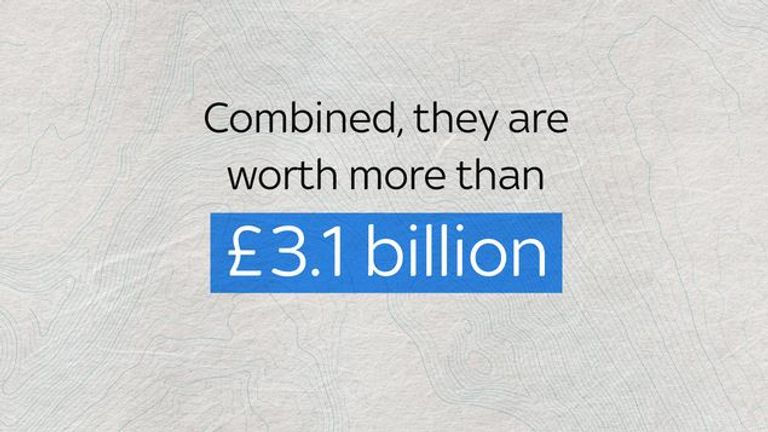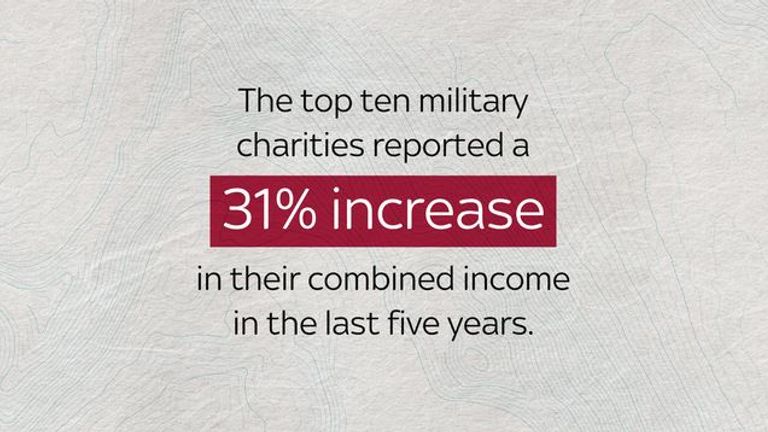Research carried out by Sky News has revealed that some of the UK's largest military charities are sitting on vast sums of money despite many veterans still struggling for help.
Data collated from annual accounts shows that the 10 wealthiest armed forces charities have cash reserves totalling £277m. This is money sitting in bank accounts unused.
One chief executive has described it as "a scandal" and another admitted it shouldn't happen.
It is common practice, and sensible, for charities to keep six to 12 months' income in reserve in case of financial problems, but one charity, the RAF Benevolent Fund, has almost two years' income (£37.4m) in reserve.
In a statement to Sky News, the charity defended itself, saying: "Our board of trustees has agreed a minimum of £30m in free reserves is required to ensure we are able to look after those members of the RAF family we support, throughout their lifetime, whatever happens to the fund.
"Robust financial management of our reserves is based upon long-term projections of the needs of the RAF family (serving and retired personnel and their dependants), taking into account the uncertainty of future income."


The data, collated by Victoria Elms for Sky News, has revealed further surprising statistics.
In the five years since the end of Afghan operations, military charities' income has actually grown by 31%, making the 1,519 registered military charities in the UK now worth a collective £3.1bn.
The top 10 military charities are worth nine times more than their police equivalents and seven times more than the top 10 civilian mental health charities.
Veterans interviewed by Sky News complained that the money wasn't always filtering down to those who needed it and the bureaucracy had left some of them suicidal.
"Every time I have to open this box it breaks me," one said, describing the mound of letters he has sent to the government and charities pleading for help.
Ed Tytherleigh from the Confederation of Service Charities admitted that co-ordination between charities could be better:
"At the local level I think there is really good bilateral co-ordination between different Read More – Source





